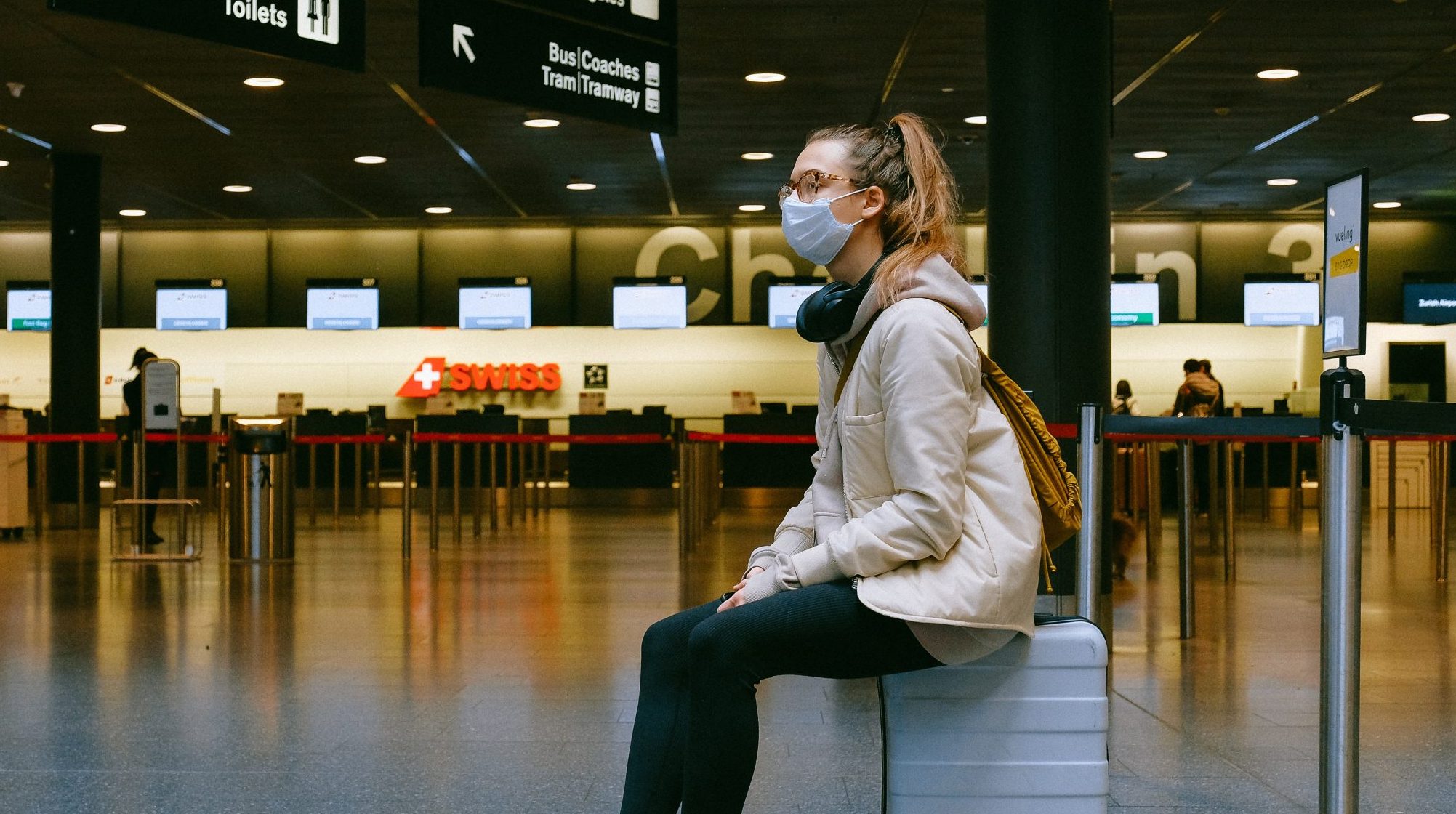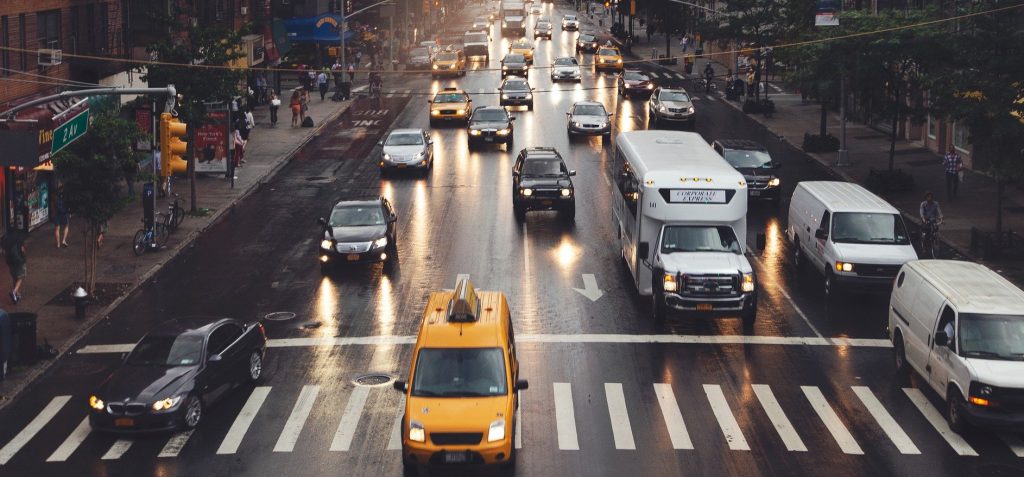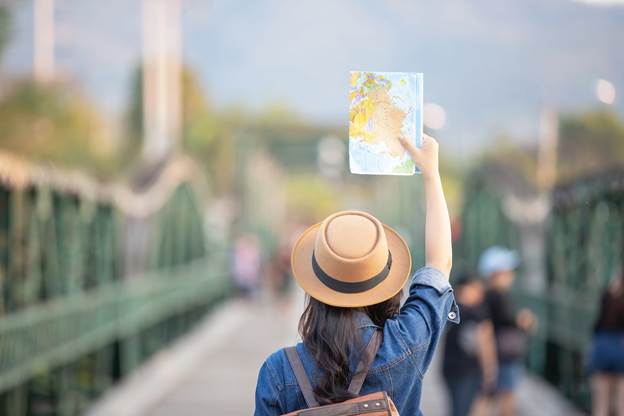The morning flight from Cairo to London’s Heathrow Airport is one of the most traveled routes on EgyptAir’s schedule. Although not without its inconveniences, traveling during the COVID-19 pandemic might actually not be the worst time to fly, especially to a quarantine-free destination. In fact, it may be an opportune time to do so.

My partner and I took the 9:10 a.m. flight out of Cairo International Airport at the end of October. While we were hesitant about making the journey during the beginning stages of what seems like a second wave of COVID-19 enveloping most of Europe — the U.K. had the continent’s third-highest number of cases (more than 854,000) as of October 25 — the experience was neither as hectic nor precarious as we anticipated when we made reservations a month prior.
It was a stroke of luck when the airline moved our initial booking from 5:30 pm to a more convenient morning flight, which was understandably more expensive, though not by much. Airline tickets can be a steal these days, as we managed to pay less than $1,000 roundtrip for two economy seats, compared to more than $1,500 last year.
The booking change was the first evidence of how air travel is different. More importantly, it exemplified just how hard the pandemic has hit the global airline industry as carriers consolidate underbooked flights to cut costs. I couldn’t help but wonder how such a practice, however financially sensible, might adversely affect the mandatory social distancing requirement.
While masks are compulsory, wearing one for nine hours was not as suffocating as I had imagined. Perhaps this was largely due to the cold air circulation common in airports and cabins of planes at high altitudes. There was ample evidence of coronavirus measures undertaken by Egypt’s airport authority, with sanitizer stations, social distancing floor stickers and PPE-use in abundance throughout the terminal.
Before flying to the U.K., and most countries in Europe, passengers are required to fill out a locator form with such information as their address during their visit, travel itinerary and statements guaranteeing visitors will respect COVID-19 protocol. The forms go to relevant authorities, in this case the British Home Office and Border Police. The purpose is to ensure visitors abide by social distancing policy, namely the mandatory 14-day quarantine (not counting the day of arrival) as incoming passengers are subject to spot checks and visits by police and other authorities during their stay.
The airport was pleasantly empty in stark contrast to my usual experiences in major airports. Instead of the normal taxing hustle and bustle, stress-inducing throngs of hurried and disheveled passengers, and endless queuing both on and off the plane, we were treated to a smooth and enjoyable experience.
Customer service from staff and airport personnel was markedly improved as they were noticeably attentive and, more importantly, professionally thorough. We surmised this was most likely because they also were enjoying the benefits of fewer people traveling. We also observed there were fewer families traveling. The majority of the passengers we saw looked like business travelers, couples and tourists.
An ironic moment during the routine security check at the gate before boarding had one of the security attendants confiscate two bottles of hand sanitizer. He explained the sanitizer, although being less than the limit of 100 milliliters for cabin liquids, contained alcohol, which is not permitted even in small amounts.

As we boarded the flight, we gathered from the rapid procession of the line from the gate into the jet tube that the aircraft would barely be at half capacity. This was possibly the most convenient benefit of flying during COVID-19 and one we relished. We started with a pair of boisterous children sitting in the row behind us, but there was plenty of space to change seats. This would almost certainly have been impossible before the pandemic. In all, boarding and disembarking from the flight had none of the typical clamor or idle waiting.
EgyptAir offers all passengers a complimentary sanitary pack with face masks, hand sanitizer, wet wipes, and plastic gloves in a convenient zipper bag, which we found perfectly doubled as a case for our Kindle digital book reader. While the journey was comfortable, there was no coffee or tea and no blankets or pillows. Meals were contained in plastic boxes, presumably another COVID-19 preventative effort.
Somewhat amusing were the intermittent announcements delivered before takeoff and landing advising passengers to maintain social distancing guidelines, despite the fact we could not conceivably do so given the proximity of passengers in narrow isles. Interestingly, our original seats placed us next to another passenger despite many empty rows scattered throughout the plane.
Entering Heathrow Airport, we realized it was a desolate shell of its former self with empty and shuttered stores, a scant number of passengers, and walls and floor replete with coronavirus public service messaging. We couldn’t complain much because walking through the airport was a breeze. Since we both possess biometric-enabled passports, this allowed us to transit through passport control via an automated turnstile. It was only after using this convenient automated facility that we realized we didn’t need to submit our passenger locator forms.
Instead of taking a taxi or Uber, we opted for the Heathrow Express subway train. Our destination required no change of lines and the obvious lack of human traffic made it more convenient. The underground was equally sparse, a far cry from London’s usually packed subway system. We could not spot anyone not wearing a mask or some form of face covering, reflecting a palpable sense of obedience and compliance among Londoners due to the severity of the pandemic in the city.
It goes without saying that COVID-19 has undoubtedly caused a lot of harm and disruption, however, the pandemic has surprisingly and ironically all but eliminated many of the inconveniences that air travel normally involves. All told, if you need to get somewhere abroad, it may not be the worst time to fly.







